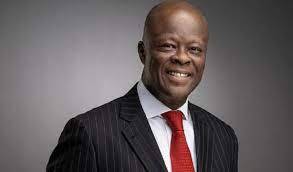There was a mild drama at the National Assembly Thursday as the Minister of Finance and Coordinating Minister for the Economy, Wale Edun opted for executive session as a result of searching questions on fuel subsidy accrual and 2024 budget performance.
By Haruna Salami
There was a mild drama at the National Assembly Thursday as the Minister of Finance and Coordinating Minister for the Economy, Wale Edun opted for executive session as a result of searching questions on fuel subsidy accrual and 2024 budget performance.
Edun who led the Federal Government Economic Team before the Senate Appropriations Committee to defend 2024 budget performance and 2025 appropriation bill before the National Assembly, was asked how much was saved by the government from fuel subsidy removal, the actual performance of the capital component of the 2024 budget in percentage and what will be the benefit to Nigerians for extending implementation of 2024 budget to June 2025.
The session, which was expected to provide clarity on budget performance and fiscal planning, quickly took a dramatic twist as senators asked searching questions demanding specific answers, forcing the minister to request an executive session, a move that further agitated lawmakers as reporters were sent out.
The Senate Appropriation Committee, chaired by Senator Adeola Olamilekan, had yielded the floor to Mr. Edun to answer critical concerns about budgetary transparency, capital expenditure performance, and the utilization of funds saved from the removal of the fuel subsidy.
However, the minister, before speaking to the issues, demanding specific details requested for an executive session.
Lawmakers expressed dissatisfaction over the lack of detailed figures and clear explanations, with senator Senator Abdul Ningi (Bauchi Central) pointedly asking, “how much has truly been saved from the removal of the subsidy, and where has the money gone?”
Other senators demanded answers on debt servicing, revenue projections, and the impact of the extended 2024 budget implementation timeline on the economy.
Ningi said “I have listened to the submissions of the Ministers, and I must say my concerns remain unaddressed. As an Appropriation Committee, we are tasked with overseeing budgetary matters, and many of us here are chairpersons of committees that will carry this presentation back to our respective teams.
“In your opening remarks, Mr. Chairman, you referenced budget performance, but we are yet to hear specific figures or percentages regarding capital expenditure and recurrent expenditure.
“What is the current budget performance? These details are critical for our deliberations and for informing the larger public.
“On the removal of fuel subsidies, we have not been told how much has been saved, how these savings have been utilized, or what projections are in place. Similarly, debt servicing remains a grey area. How much debt did we service in 2024, what are the projections for 2025, and how does this impact the economy?
“Additionally, the 2024 budget’s performance was extended to June 2025. Can the Minister of Finance assure us that this extension will yield tangible benefits for the economy? These questions must be addressed with clear, detailed figures to guide our committees and the public on budget performance and expectations.
Lastly, while there have been commendable improvements in revenue collection, especially in the third quarter of 2024, issues remain with the independent revenues of Government-Owned Enterprises (GOEs).
Tahir Monguno, Chief Whip (Borno North): “There is a school of thought suggesting that one of the major obstacles to the successful implementation of the capital component of the budget is the introduction of the ‘bottom-top approach’ by the current administration. This policy has centralized payment and processing in the Office of the Accountant General, replacing the previous decentralized system where ministries, departments, and agencies handled these tasks independently.
This centralization has reportedly introduced significant bureaucratic delays and bottlenecks, hindering the smooth execution of the budget. Furthermore, it is alleged to have created opportunities for corruption due to the excessive concentration of power in the Office of the Accountant General.
“I believe it is crucial to reevaluate this ‘bottom-top approach’ policy with the aim of facilitating more efficient implementation of the capital component of the budget. Doing so will ensure that the dividends of democracy are delivered directly to the vast majority of our people.”
Amid the escalating tension, Edun requested an executive session, citing the need to discuss sensitive fiscal details away from the public eye. This demand sparked outrage among senators, who insisted on full disclosure during the open session. “This is not a private matter; it concerns the Nigerian people,” one senator retorted, drawing applause from colleagues.
Despite the uproar, Edun maintained his composure, emphasizing the administration’s commitment to transparency and economic recovery. He assured lawmakers that the government was working to resolve delays in capital expenditure implementation and improve revenue generation from non-oil sectors.
Chairman of the Committee, Olamilekan granted minister’s request for a closed-door meeting, announcing that the press and all others, including security agents should go and leave the senators alone.




